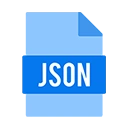JSON (JavaScript Object Notation) does not have a specific data type for dates. Instead, dates are typically represented as strings in a standardized format. The most common format for representing dates in JSON is the ISO 8601 format, which provides a clear and unambiguous way to represent date and time information. Below, we will explore how to represent dates in JSON, including the recommended format and examples to illustrate their usage.
1. ISO 8601 Format
The ISO 8601 format for dates is a widely accepted standard that represents dates and times in a consistent manner. The format is as follows:
- Date:
YYYY-MM-DD(e.g.,2023-10-05) - Date and Time:
YYYY-MM-DDTHH:MM:SSZ(e.g.,2023-10-05T14:30:00Z) - Time Zone: The
Zat the end indicates UTC time. You can also specify a time zone offset (e.g.,2023-10-05T14:30:00-05:00for UTC-5).
2. Example of Representing Dates in JSON
Below is an example of a JSON object that includes a date represented in ISO 8601 format:
{
"event": {
"name": "Conference",
"date": "2023-10-05T14:30:00Z",
"location": "New York"
}
}
3. Accessing Dates in JSON
In JavaScript, you can access date strings in a JSON object using dot notation or bracket notation. Here’s how you can access the date value from the JSON object defined above:
Sample Code to Access Date Values:
const eventDetails = {
"event": {
"name": "Conference",
"date": "2023-10-05T14:30:00Z",
"location": "New York"
}
};
// Accessing the date value
console.log(eventDetails.event.date); // Output: 2023-10-05T14:30:00Z
4. Converting Date Strings to Date Objects
When working with date strings in JavaScript, you may want to convert them into Date objects for easier manipulation. You can do this using the Date constructor:
Example of Converting a Date String to a Date Object:
const dateString = eventDetails.event.date;
const dateObject = new Date(dateString);
console.log(dateObject); // Output: Date object representing the date and time
console.log(dateObject.toLocaleString()); // Output: Localized date and time string
5. Conclusion
While JSON does not have a dedicated data type for dates, representing dates as strings in ISO 8601 format is a widely accepted practice. This format ensures that date and time information is clear and unambiguous. By understanding how to represent and manipulate dates in JSON, developers can effectively manage date-related data in web applications and APIs.

